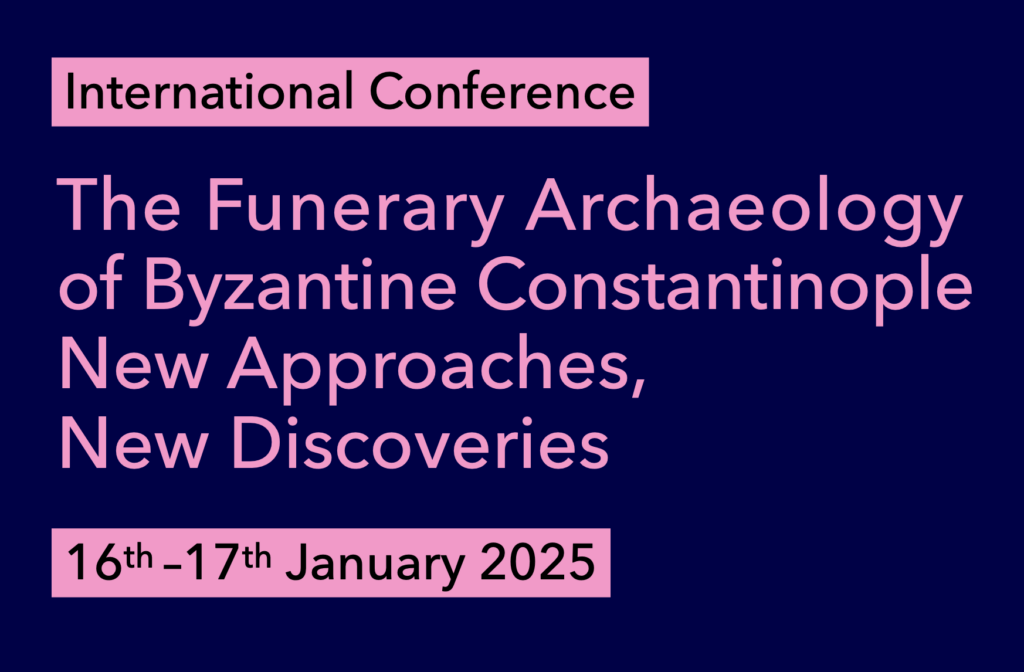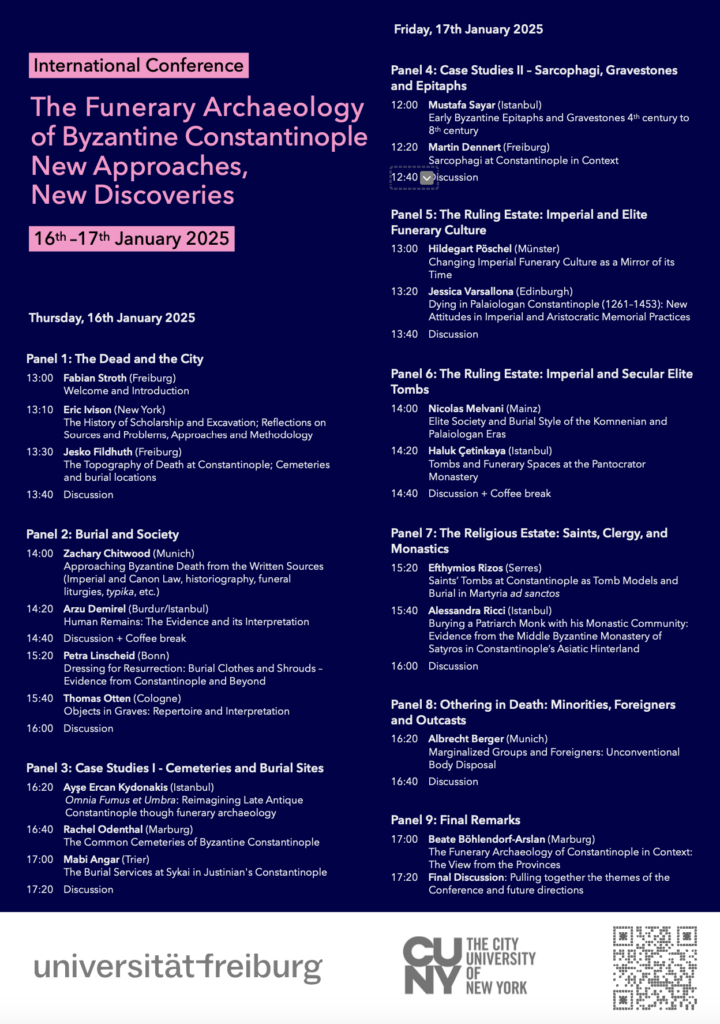Mortuary practices are cultural phenomena common to humanity, and therefore burials and the “archaeology of death” have long been recognized as essential sources for all archaeologies. This is also true of Byzantine archaeology, and in recent decades graves and tombs, cemeteries and burial churches have increasingly been the focus of historical, art historical, and scientific research. By reason of its importance and size, the Byzantine capital of Constantinople occupies a central place in the historical development of Byzantine burial practices, and its funerary archaeology can be recognized as an essential source for understanding society, religion, demography, and urbanism in the imperial city. However, despite this importance, in contrast to the funerary archaeology of Old Rome, that of Constantinople is relatively poorly documented and often badly preserved, with data scattered in disparate publications, and lacks a theoretical base and detailed synthesis. Fundamental information is still lacking, and even what is known has never been systematically compiled and evaluated.

Our conference seeks to address these issues by focusing on new approaches, new methodologies, and new discoveries. We aim to synthesize and devise a new understanding of the funerary archaeology of Constantinople and its suburbs, moving beyond just the primary documentation of empirical data to consider challenges of its recovery and interpretation, and to build up a new diachronic understanding of the development of burial practices in the capital region from the 4th to the 16th centuries. By using the term ‘funerary archaeology’ we wish to encourage the development of an inclusive, holistic, and multidimensional approach to this subject, one that brings together historical texts, archaeology, and scientific data in interpretive dialogue, and which is sensitive to theorizing in other funerary archaeologies. Our aim is to take a broader view than solely the prestigious and well-published monuments (imperial tombs, aristocratic burial churches), although they should be included in such a conference. Rather than just reprising what is well-known and well-published about such monuments, we aim to put these elite burial practices into proper relation with the rest of the funerary archaeology and written sources that document the other mortuary populations of Constantinople.
Without neglecting the obvious religious, artistic, and historical dimensions of the funerary archaeology of Constantinople, particular foci, in terms of papers and the desired outcomes of the conference, will be:
- To gain better understanding of the funerary archaeology itself, the historical development of grave and tomb types, and burial styles, by synthesizing old and new material.
- To explore the construction of individual and collective identities in death through burial by examining the mortuary practices of different social categories and groups, populations and ethnicities.
- To analyze the funerary archaeology of Constantinople through the intersection of social status, religious belief, gender, culture, and ideology.
- To develop a better understanding of the organization, administration, and spatial distribution of burials and cemeteries, and of the chronological development of the same inside and outside the city, and thus to gain a better understanding of burial as an institution at Constantinople.
- By doing so, to enhance our understanding of the roles of burial places and the topography of death in the urban history and development of Constantinople from its foundation by Constantine I through the Ottoman conquest.
- More broadly, to contribute to our understanding of the evolution and interpretation of Byzantine burial practices, and to the development of its archaeological methodology and theory.
- To promote and stimulate a greater awareness of the importance and potential of Byzantine funerary archaeology in archaeologists, historians, and Byzantine scholarship in general.
Date: 16th–17th January 2025
Zoom registration: https://uni-freiburg.zoom.us/meeting/register/u5Ekde-rpjsiGtJ1yxqEOsfJWfIWIxlSowd_#/registration
Contact: fabian.stroth@archaeologie.uni-freiburg.de
Programme: https://www.byzanz.uni-freiburg.de/pdf/poster-funerary-archaeology.pdf
Organizing Committee:
Martin Dennert (Freiburg), Jesko Fildhuth (Freiburg), Eric Ivison (New York), Fabian Stroth (Freiburg)

